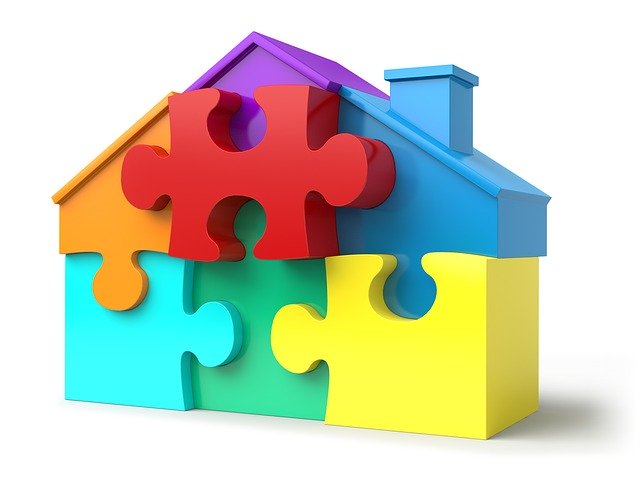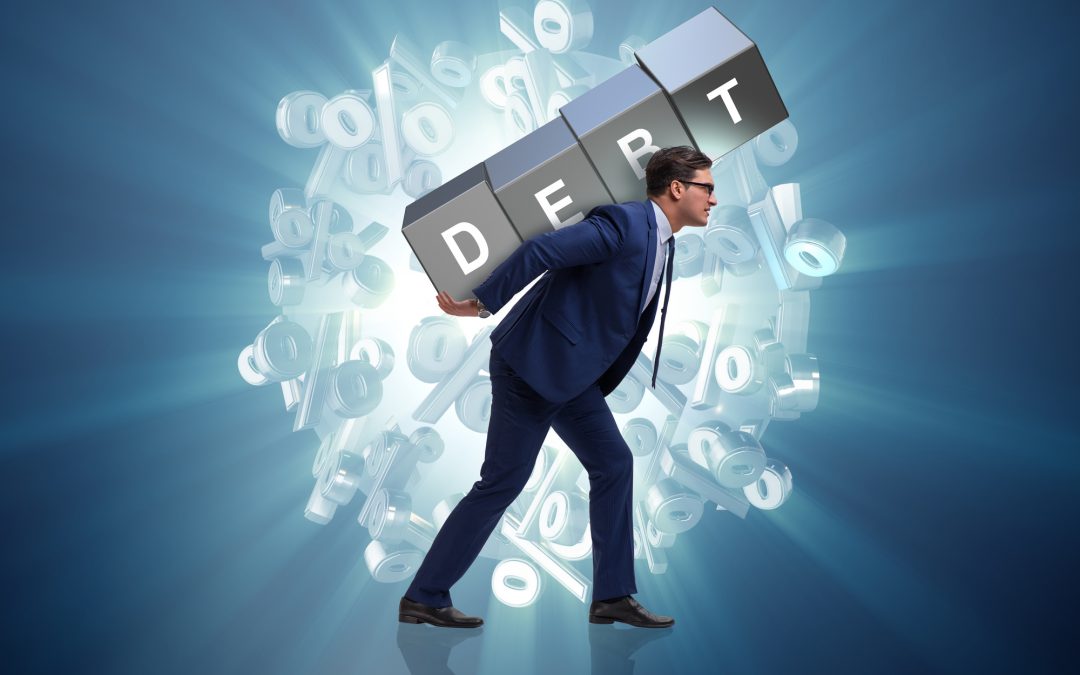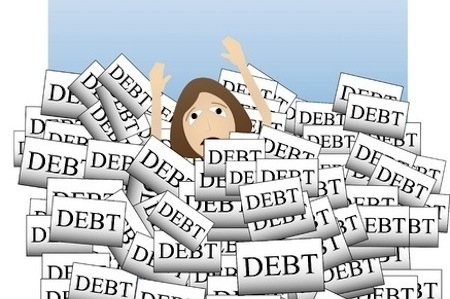
Jan 20, 2020
A Home Equity Line of Credit is an open-ended account similar to a credit card that you can borrow against and repay. The fact that HELOC loans are very similar to credit cards can be considered an advantage or a disadvantage depending on which side of the fence you’re on. If you are a person with spending habits that have proven to be dangerous in the past, you should consider these types of loans dangerous.
A HELOC is a credit line secured by your property, but you only borrow funds as needed.
In this line of credit, you can use and repay as much of the loan as you choose as many times as you like during the draw period. This allows you to only pay interest when you are using the money.
A primary advantage of using a HELOC to pay off debt is to cut the high-interest rates you’re being charged on that other debt. For example, if the average annual interest rate for HELOCs is 5% and if you use funds from that HELOC to pay off a $12,000 credit card balance with 19% annual interest, you’re significantly saving on interest charges.
HELOCs typically come with adjustable, not fixed interest rates, so if interest rates rise, the rate on the HELOC will rise, disrupting your budget. The adjustable rates come with caps on how much the rate may rise over the life of the loan, but these may not provide much protection if they’re high. All home equity lines of credit do have adjustable rates, but they seem to carry a much higher risk than that of a regular adjustable-rate loan. Changes in the mortgage market can affect HELOC rates very quickly. This is one of the disadvantages of HELOC, however, many banks offer an option to convert to a fixed rate.
The second disadvantage of a HELOC is an increase in your housing costs if you’re still paying off a first mortgage, plus the home equity line of credit each month.
If you use up your home equity cushion to consolidate debt, you are putting your home at risk hat definitely makes you vulnerable. If you do not manage to keep up with your monthly payments and you do not manage to reach an agreement with your lender, you will end up losing your home.

Jan 20, 2020
If you’re a homeowner, you can borrow against the equity in your home and consolidate your debt with a Home Equity Loan or Home Equity Line of Credit (HELOC). Equity is the value of your property based on how much you have paid down on your first mortgage. While equity loans often provide lower interest rates than unsecured financing, there are risks and disadvantages that should never be overlooked.
A Home Equity Loan is a closed-ended account that’s repaid over a period of time. It is a second mortgage on your home that takes the form of a lump-sum distribution, so you have to choose the specific amount to borrow upfront. You make equal monthly payments over the full term of the loan until it is repaid.
Interest on home equity loans is usually much lower than on credit card debts. You have a much lengthier repayment period on a home equity loan means your monthly payments could be much smaller.
When compared with HELOCs, home equity loans generally come with higher interest rates because they offer the security of a fixed rate.
However, to secure your home equity loan, your lender puts a lien on your property in the same way your original mortgage lender does. This puts you at an increased risk of property loss if you don’t meet your repayment obligations. A job loss or other bills piling up that cause you to miss first or second mortgage payments can become a serious problem.
Unlike credit lines, an equity loan is repaid in monthly installments, similar to your first mortgage so your monthly debt commitment rises. This means you owe the installment amount each month until your debt is entirely repaid.
While your home is the place you live, it is also property investment. Borrowing an additional amount against your equity reduces the net worth of your property asset. This means that if you ever sell your home, you would walk away with less money because you have to pay off two loans. Plus, paying off additional principal and interest each month prevents you from paying down your first loan more quickly.
And the biggest disadvantage is that it is nearly impossible to discharge a home equity loan. You either pay it or your home goes into the power of sale or foreclosure. Credit card debt is dischargeable. If you have a hard time managing debts, the chance that you might lose your home makes the conversion of consumer debt to property debt very risky.
Unless you have a very solid income and live in an area where home prices are consistently rising, replacing consumer debt with an equity loan is probably not a good idea. You should consider consolidating credit cards or other unsecured debt without using home equity first. To do that, contact SAN Mortgages to develop a proper strategy for your debt consolidation.

Jan 20, 2020
Here are some risks that debt consolidation caries:
- Some Loans Have Prepayment Penalties– Prepayment penalties aren’t as common as they once were, but they remain a factor in debt consolidation decisions. Where they exist, prepayment penalties may erode the case for consolidation. Always crunch the numbers to determine the net cost of an early payoff.
- Subprime Borrowers May Struggle to Find Affordable Loans without Collateral – Credit-impaired borrowers may struggle to qualify for unsecured debt consolidation loans with suitably low monthly payments, finance charges, or both. Such borrowers may need to put up valuable collateral, such as car titles, to qualify for secured debt consolidation loans.
- Secured Debt Consolidation Loans Risk Asset Loss – Although they invariably carry lower APRs or fixed – rate than comparable unsecured loans, secured debt consolidation loans present a unique risk for delinquent borrowers: potential asset loss.
There is a huge downside to consolidating unsecured loans into one secured loan. When you pledge assets as collateral, you are putting the pledged property at risk. If you can’t pay the loan back, you could lose your house, car, life insurance, retirement fund, or whatever else you might have used to secure the loan.
- One Loan Can’t Change Unhealthy Financial Behaviors – Using a debt consolidation loan to wipe out high-interest debts may actually reward unhealthy financial behaviours. While all debt-ridden borrowers stand to benefit from debt consolidation, those who inched into debt through poor money management must take concrete steps to avoid a repeat in the future.

Jan 20, 2020
The biggest problem with debt consolidation is that it doesn’t address the reasons why you got into debt in the first place. If you don’t change your spending habits, then consolidating debt is only going to be a short-term fix.
Debt consolidation is also may not be for you if your credit score is low and you’re unable to qualify for a lower interest rate. Simplifying your monthly payments is helpful, but only if you can eliminate the amount you’re paying in interest.
While you can use your home equality loan to consolidate your debt, it is not always advised. You will be converting your unsecured loans into a secured loan. While this will result in a lower interest rate for the debt, you will be putting your home in jeopardy if you’re unable to make the monthly repayments. Sometimes, if you are consolidating for the wrong reasons, it might not be worth it.
And finally, if you use introductory 0% or low APR credit card for a balance transfer, be sure when the introductory 0% APR offer expires, your debt is paid off by that date. After that date, the interest rate is likely to skyrocket, and if you still owe the balance your balance, you could end up in the same financial situation you’re already in.

Jan 20, 2020
Depending on your circumstances, debt consolidation may or may not be right for you. For every benefit of borrowing to pay down your debts, there’s a drawback or caution to keep in mind.
Here are a few scenarios when you might consider debt consolidation:
- Your outstanding debt (excluding your mortgage) is less than 40% of your monthly income.
- You have a high credit score and can qualify for good rates on a balance transfer card or debt consolidation loan.
- Your income is high enough to meet your monthly debt repayments.
- You have a strategy for staying out of debt in the future.
Here is an example of when debt consolidation is a good plan. Let’s say you have three open credit cards with interest rates ranging between 19% and 25%. If you’re able to qualify for an unsecured personal loan with a lower interest rate than an 8% interest rate, then debt consolidation could be a good plan. You’re saving money on interest and can get out of debt quicker than if you continue paying on high-interest credit cards.





